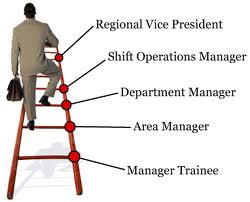Career Advice and Career Coaching As A Powerful Talent Retention Tool
 In my years of coaching and leading teams, one of the biggest challenges is attracting talent and staff retention in a very competitive industry where competitors are willing to fork out huge salaries to lure your key talents away. One of my best kept weapons is the ability to provide career advice and coach my staff in their career journey.
In my years of coaching and leading teams, one of the biggest challenges is attracting talent and staff retention in a very competitive industry where competitors are willing to fork out huge salaries to lure your key talents away. One of my best kept weapons is the ability to provide career advice and coach my staff in their career journey.
What Constitutes Career Advice or Career Counselling?
 For the purposes of not losing the larger picture of the intention of this article, I have loosely used career advice and career counselling interchangeably.
For the purposes of not losing the larger picture of the intention of this article, I have loosely used career advice and career counselling interchangeably.
In general, career advice or counselling focusses on issues such as career exploration, career change, personal career development and other career related issues. Every staff or member of your workforce has a career need which varies with their working experience and age.
For example,
- new workforce entrants or graduates tend to be lost or need advice in career direction – not knowing exactly what types of jobs they should go for and what they would excel in. This of course is not always the case but a good 70% of those I have coached tend to face such issues.
- Employees who have worked for 5-10 years tend to get anxious or be more concerned about career progression, job enlargement or promotion prospects especially when their peers are doing far better.
- Senior employees who have worked between 10-20 years tend to seek worklife balance, or even more aggressive promotion or career advancement opportunities as their lifestyle needs change – most of them might have formed their own family units and hence the changes in career needs.
- Finally, those employees who have worked over 20 years tend to seek out the meaning of lives and how their careers could bring out the meaning.
 As you can see, whilst I might have generalised the types of employees, their career needs are varied, and a function of their lifestyles and life aspirations.
As you can see, whilst I might have generalised the types of employees, their career needs are varied, and a function of their lifestyles and life aspirations.
If you are the manager of these employees, how would you be able to provide career advice to these employees, and what happens when you do not give adequate career counselling?
Let’s take the 2nd question first : When you can’t provide adequate career counselling, you have not considered your employees’ needs in totality. If you are merely MATCHING your HIRING needs with your employees’ SKILLS, you have missed out a large part of the staff attraction and retention principle. If you were to interview your staff on what types of managers they like to have, a number would tell you it’s those who can coach them in their career (and that’s much more than job coaching). For example, awarding promotion opportunities to a staff who is seeking worklife balance or meaning does not necessarily appeal to them.
Case Study 1
Peter was a highly driven manager whose team brings in the results, and Peter has a reputation of being a very good manager who cares about his staff. One day, one of his top performing team members, Jessie resigned. Upon probing and chatting with Jessie , I discovered that Peter’s strive for high standards was something that staff, upon reaching 45, felt she could no longer cope with. In order to meet his expectations, she had to make a lot of personal sacrifices for years and she felt she could not sustain this as her children were growing up.
Case Study 2
Leena was a senior regional manager who values staff loyalty and commitment. Leena rewarded all staff with enlarged jobs or promotions. Monika resigned one day to the shock of everybody – everyone was expecting Monika to be promoted or to have a huge salary increase in the next 6-9 months. Monika explained to me that she was a sole breakwinner and the salary simply wasn’t enough. She loved everything about her job, the environment and working for Leena. But she desperately needed more money for the increased living expenses of her family and her children growing up.
Therefore, the manager who is able to differentiate himself/herself as a leader is likely one who is able to understand the personal and career aspirations of the team members and find a common path between this understanding and the job and work environment. Sometimes this path is blurred or narrow but the successful manager is able to create this path when it’s non existent or be prepared to let go of their skilled talents to competitors.
3 CAREER ADVICE TIPS For Managers To Coach Your Team Members Or Employees:
1. Set aside time regularly – at least once in a quarter of a year, to chat with your employees and LISTEN to them. They might have new lifestyle needs which impact on their jobs and such issues are unlikely to surface in usual work environment unless in informal discussions like these. One of my good friends Christina lunches with her staff on a regular basis. Consider this if it works for you.
2. When you are hiring – go beyond matching job needs to employees’ skills. It is far more than that. Consider how your job can meet the aspirations and needs of your potential employees. Therefore, instead of just asking what they can do, find out what are important to them in their career.
3. Practise career coaching skills. Such skills don’t come naturally – you need to practise them. If you haven’t ever counselled anyone on their careers before – start on a small scale by listening to your employees’ needs. First step is to listen, understand BEFORE you give any career advice.
 CAREER CONSULTATION
CAREER CONSULTATION
If you are
(a) an individual seeking professional career coaching tips, career advice or
(b) a manager/business leader seeking seeking to learn coaching skills as a manager/coach, or
(c) a company requiring training solutions, please contact us for a professional consultation or training – please state your objectives and what you need :
You might find these articles useful :












